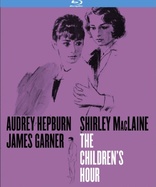The Children's Hour Blu-ray Movie
HomeThe Children's Hour Blu-ray Movie 
Kino Lorber | 1961 | 108 min | Not rated | Aug 12, 2014Movie rating
7.5 | / 10 |
Blu-ray rating
| Users | 3.5 | |
| Reviewer | 3.0 | |
| Overall | 3.0 |
Overview
The Children's Hour (1961)
Karen and Martha are the headmistresses of an exclusive school for girls. When they discipline a malicious little girl, the vindictive child twists an overheard comment into slander and accuses her teachers of questionable behavior. Soon the scandalous gossip engulfs the school's community, with repercussions that are swift, crushing and tragic.
Starring: Audrey Hepburn, Shirley MacLaine, James Garner, Miriam Hopkins, Fay BainterDirector: William Wyler
| Drama | 100% |
Specifications
Video
Video codec: MPEG-4 AVC
Video resolution: 1080p
Aspect ratio: 1.66:1
Original aspect ratio: 1.85:1
Audio
English: DTS-HD Master Audio 2.0 Mono (48kHz, 16-bit)
Subtitles
English
Discs
25GB Blu-ray Disc
Single disc (1 BD)
Playback
Region A (locked)
Review
Rating summary
| Movie | 2.5 | |
| Video | 4.0 | |
| Audio | 4.0 | |
| Extras | 0.5 | |
| Overall | 3.0 |
The Children's Hour Blu-ray Movie Review
Maybe it doesn't get better.
Reviewed by Jeffrey Kauffman August 11, 2014The recent glut of states striking down laws prohibiting same sex marriage has been seen as one of the major cultural attitudinal shifts of the past several generations, and there’s little doubt that there is a more generally sanguine reaction among the general populace to same sex relationships than was ever previously the case. It’s perhaps instructive then to look at the somewhat tortured history of Lillian Hellman’s The Children’s Hour for a brief CliffsNotes review of morphing societal morés. When Hellman’s play opened on Broadway in 1934, it was still illegal to even mention homosexuality on stage in New York. The overwhelmingly positive reaction to the play (which deals with the ramifications of a malicious rumor about supposed lesbianism on the part of the two main female characters) put that law to the test, and no legal action was taken against Hellman or the play’s producers. However, when Samuel Goldwyn purchased the film rights, he ran smack dab into the Production Code, which similarly forbade any mention of homosexuality. This time, the letter of the law was enforced, and Hellman reinvented the play as a more traditional love triangle between two women and one man, claiming that the real intent of her writing was to point out the disastrous effects of gossip on innocent individuals. It should be noted that Hellman, for all her political and societal progressivism, wasn’t above setting aside her scruples at various times. These Three, the name the 1936 Goldwyn film ultimately attained, is probably the first big salient case in point, but a few years later Hellman wrote the pro-Soviet Union The North Star. When the film was drastically reedited in the late fifties as an anti-Soviet screed called Armored Attack!, Hellman did not have her name removed, perhaps giving in to the political realities of the time (despite the fact that she had had a famously contentious run-in with the House UnAmerican Activities Committee some years earlier and was at least a “fellow traveler” in the Communist Party, if not an outright activist). Things had loosened up, at least a little, by the early sixties, and quite interestingly These Three’s original director William Wyler chose to revisit the Hellman property, this time keeping the original lesbian subtext. The Children’s Hour was supposed to have featured a screenplay by Hellman herself, but when her longtime lover Dashiell Hammett died during pre-production, she withdrew from the project, and the official screenwriting credit was accorded to John Michael Hayes. Despite sticking closer to the source material (ironically more than Hellman herself had done two decades or so previously), The Children’s Hour is curiously undercooked, albeit with some interesting touches along the way.
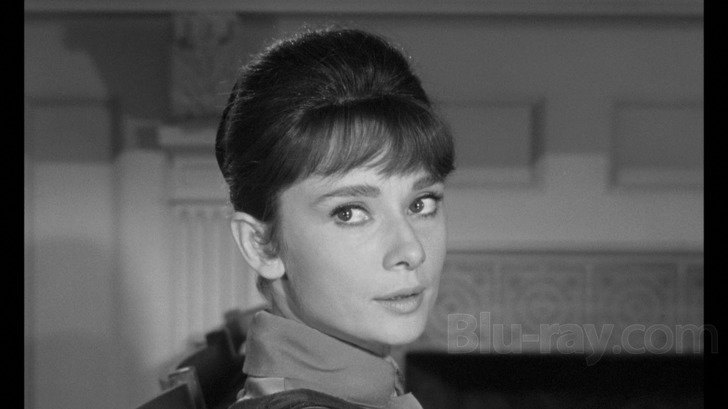
The quarter century between These Three and The Children’s Hour might seem on its face to have loosened some societal morés, but a closer examination shows reactionary elements like the right wing backlash against “godless” Communists that informed much of the late forties and early fifties (something that ironically touched Hellman’s career rather pointedly during this period). But homosexuality was still a uniquely villainized “lifestyle”, even at the dawn of the Kennedy era. Quite interestingly, a film which came out around the same time as The Children’s Hour, Otto Preminger’s adaptation of Allen Drury’s Advise and Consent, manages to work in both anti-Communist and anti-homosexual fervor into one property.
Oddly, The Children’s Hour is as circumspect about its supposedly shocking subject matter as the main characters themselves are accused of being. Karen Wright (Audrey Hepburn) and Martha Dobie (Shirley MacLaine) are former college roommates who have founded a girls’ boarding school which seems to cater to fairly well to do families. It’s been hard going nonetheless, and the two women are overworked and stressed, though ecstatic that their bank account is finally showing signs of staying permanently in the black. With success seemingly within reach, Karen is more at ease finally setting a date with her longstanding fiancé, Joe Cardin (James Garner), a local doctor. That seems to bring out a bit of jealousy on the part of Martha, though it’s placed within the context of the pair’s still fragile business endeavour.
One of the women’s students is a problematic child named Mary Tilford (Karen Balkin), an unhappy bully who is also prone to hypochondria. Mary has her grandmother Amelia (Fay Bainter, Academy Award nominated for this performance) wrapped around her chubby little finger, so that when Mary is punished for telling a lie, the little girl seeks vengeance by claiming that Martha and Karen are involved in a lesbian affair. Now, mind you, this is dealt with almost completely by implication, as might be expected in a film from this era, though Karen does at one point finally blurt out that all the brouhaha is about the rumor that she and Martha are (as she puts it) “lovers”. But both Hayes and Wyler seem absolutely opposed to dealing with anything overtly here. Things are whispered or otherwise referred to without ever really being depicted. This approach continues even once there’s a lawsuit driving the plot. It’s a weirdly dissociative technique that tends to divorce the drama from any real sense of context.
Where The Children’s Hour manages to find some emotional traction is in the not very surprising denouement that Martha indeed has had buried romantic feelings for Karen, something that the trials (literally and figuratively) that Mary’s accusations forced the women to go through actually also forced Martha to confront her true feelings and identity. The final scenes between Hepburn and MacLaine are among the best in the film, though there’s a surplus of dewy eyes and near hysteria on the part of each of the actresses that sometimes suggest they were aiming for the second balcony (and maybe even an Oscar nomination).
The major letdown in this film is Karen Balkin as Mary. These Three had the inimitable Bonita Granville in this role, and she frankly stole the film from her elders (she received an Academy Award nomination for Best Supporting Actress the first year that award was given). Balkin is despicable, but she doesn’t seem nearly cunning enough to have pulled off such a scheme. The fact that hordes of adults simply fall in line with one obviously bratty little girl’s accusations is also a sticking point, though admittedly one that is part of Hellman’s source material. (Interestingly, one of the two women caught in the traditional love triangle in These Three was played by Miriam Hopkins, who shows up in this film as the dotty aunt of Martha.)
It’s at least a little ironic that a story built around the “shocking” element of lesbianism should be more captivating in its Bowdlerized hetero rendering as These Three than in this more faithful but stilted adaptation. That probably only goes to prove that Hellman was correct in claiming that the story’s real point is the harmful effects of gossip. Maybe it’s a small consolation to realize that in many corners of the United States these days, any little girl making a similar accusation about her teachers would probably be laughed at derisively and that no one would even think about repeating a tale that no longer has the force of scandal behind it.
The Children's Hour Blu-ray Movie, Video Quality 
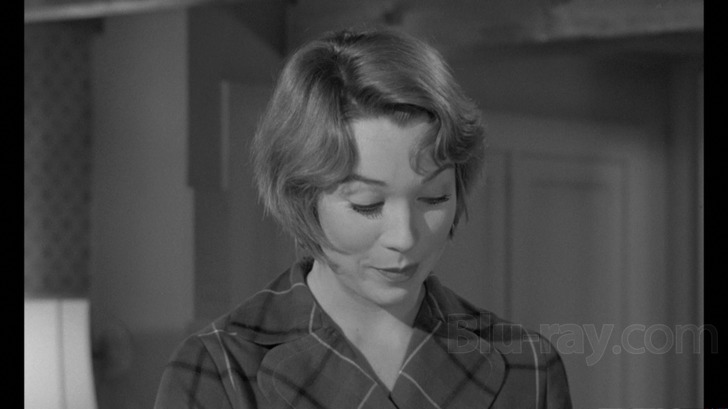
The Children's Hour is presented on Blu-ray courtesy of Kino Lorber Studio Classics with an AVC encoded 1080p transfer in 1.66:1. The elements utilized for this presentation are in remarkably good shape, with only very minimal flecks and the like very occasionally dotting the proceedings. While there's not a surplus of depth here, contrast is very good to excellent, blacks are generally convincing and gray scale is nicely modulated. Wyler and DP Franz Planer (who received one of the film's Oscar nominations) feature a lot of close-ups, many of which boast commendable fine detail. Kino seems to be following in the footsteps of other catalog licensing labels by indulging neither in restorative efforts nor intrusive digital tweaking, and the result here is a very nice looking presentation which maintains a naturally filmic appearance.
The Children's Hour Blu-ray Movie, Audio Quality 
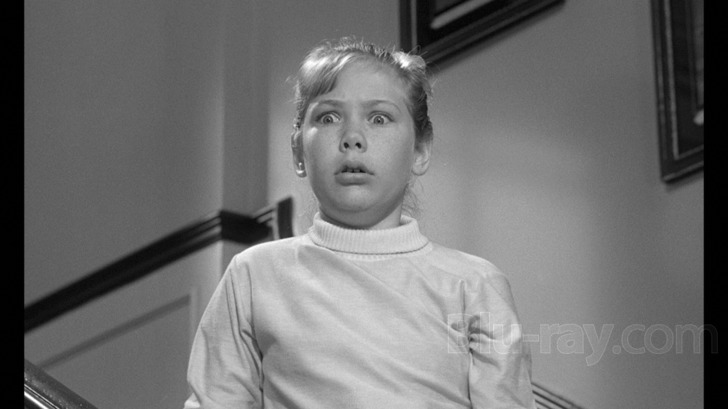
The Children's Hour's lossless DTS-HD Master Audio 2.0 mono mix doesn't have a whale of a lot to work with other than lots of dialogue and the occasional minimal Alex North cue. The track suffices perfectly well for the small scale sound design of this film. Dialogue is presented very cleanly and clearly, and there's no damage of any kind to report.
The Children's Hour Blu-ray Movie, Special Features and Extras 
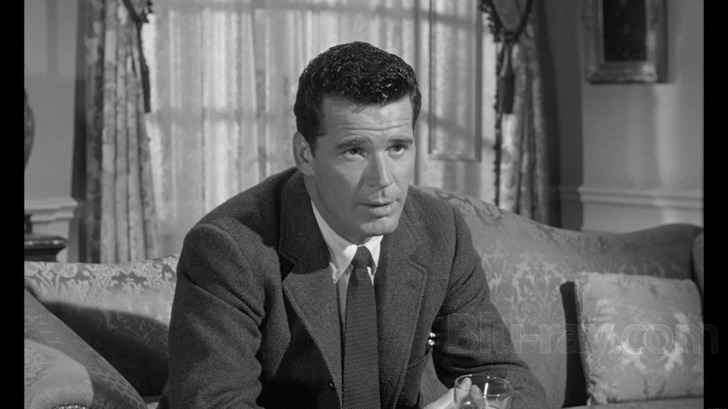
- Trailer (1080p; 1:53)
The Children's Hour Blu-ray Movie, Overall Score and Recommendation 
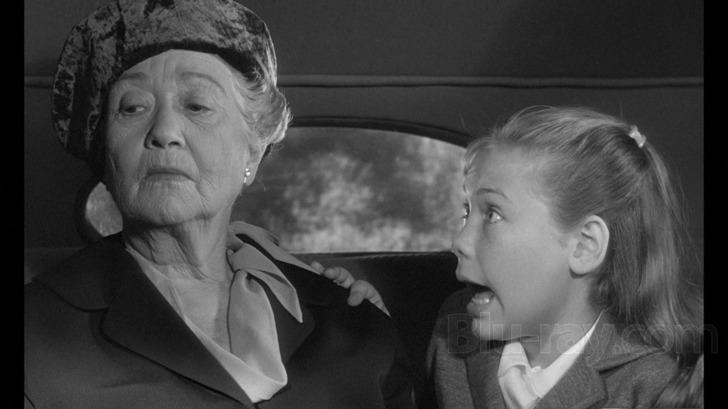
Some enterprising filmmaker might want to revisit The Children's Hour, though it would probably work best if it were set back in the 1930s when accusations of lesbianism still carried a bit of shock value. While that shock value was still around in 1961, this film's steadfast refusal to deal with its subject matter head on means that audiences get to do a lot of reading between the lines, which tends to sap the film of dramatic momentum. Hepburn and MacLaine are both very good here, but the film is just kind of drab and dowdy. Technical merits are strong for those considering a purchase.
Similar titles
Similar titles you might also like

The Way He Looks
Hoje Eu Quero Voltar Sozinho
2014

Albert Nobbs
2011

Inside Daisy Clover
Warner Archive Collection
1965

Another Country
1984

Kill Your Darlings
2013

The Sign of the Cross
1932

Sophie's Choice
Collector's Edition
1982

Very Good Girls
2013

The Life Before Her Eyes
2008

Factory Girl
2006

Big Eden
2000

Reign Over Me
2007

Magnificent Obsession
included with "Magnificent Obsession" (1954) release
1935

At Middleton
2014

What If
The F Word
2013

The Prime of Miss Jean Brodie
Limited Edition to 3000 - SOLD OUT
1969

The Boys in the Band
1970

Water for Elephants
2011

Lilith
1964

Stella Dallas
1937
